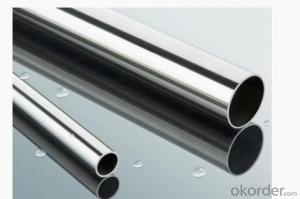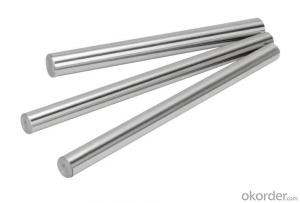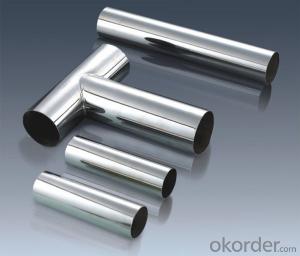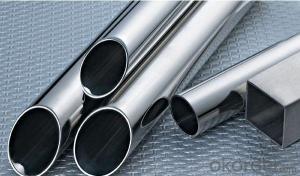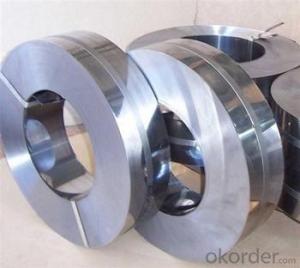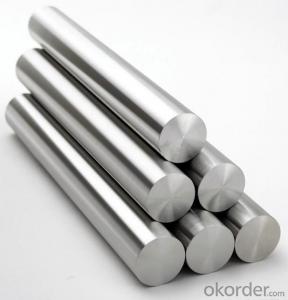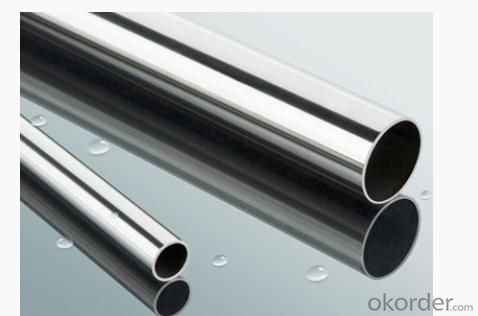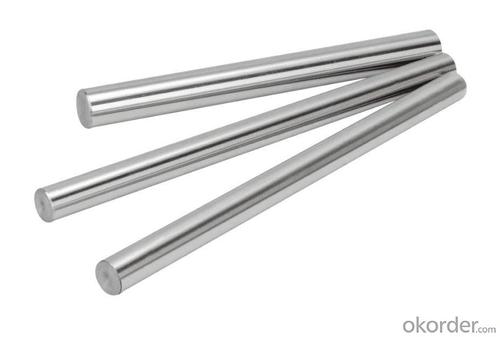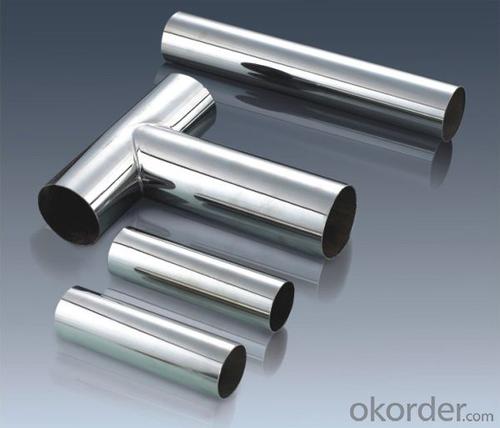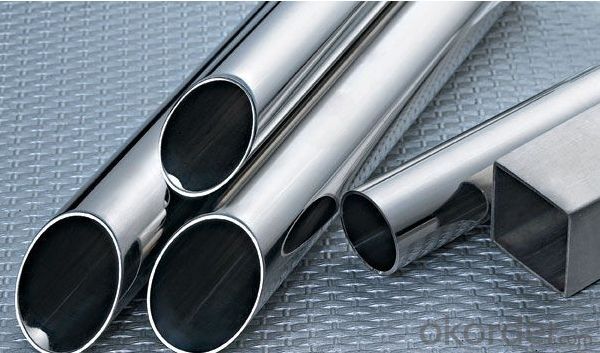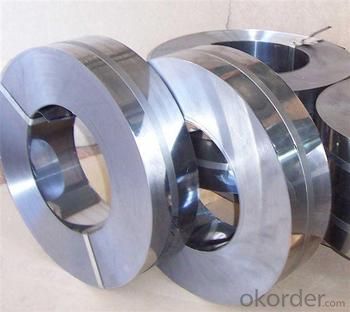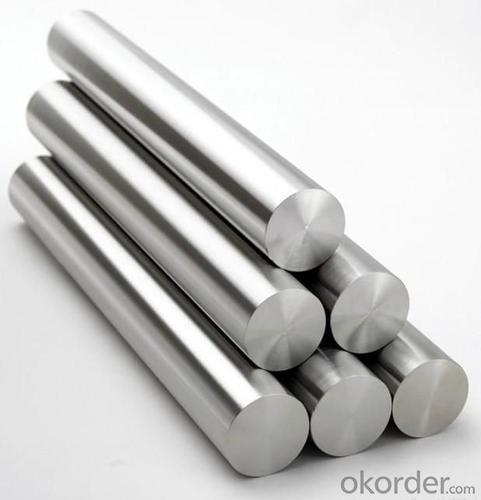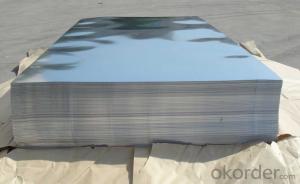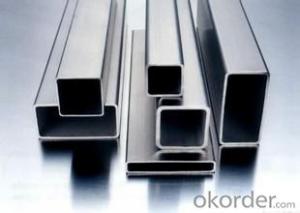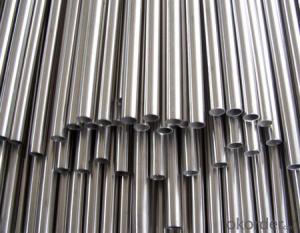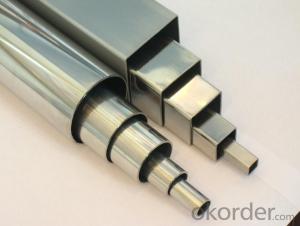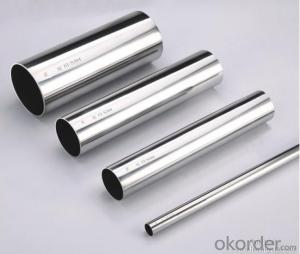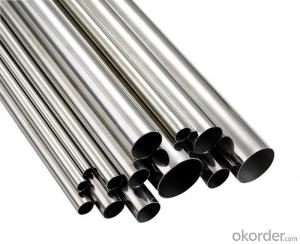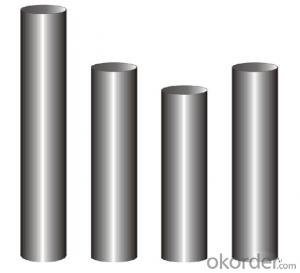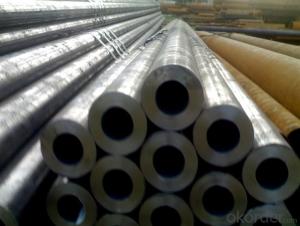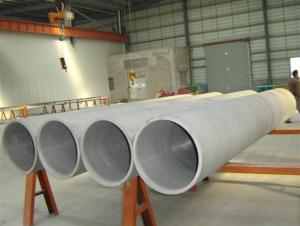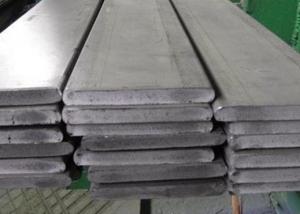Stainless Steel tube 304 with excellent quality and cheap pricing
- Loading Port:
- Shanghai
- Payment Terms:
- TT OR LC
- Min Order Qty:
- 1000 m.t
- Supply Capability:
- 1000000 m.t/month
OKorder Service Pledge
OKorder Financial Service
You Might Also Like
Stainless steel 304
Product Information of stainless steel:
- Width: customized
- Surface: 2B/BA/6K/8K/NO.4/HL.
- Thickness: 0.3mm - 3.0mm.
- Delivery time: 15-25 days.
- Length : As customer's requirement.
- Package: With export standard packing or customize packing.
- Payment Terms: T/T (30% deposit pay in advance and the balance before shipment) , irrevocable L/C.
Company advantage:
-Top Equipments, Leading In The Industry.
- Professional Team, Leading Innovation.
- Huge Supply Capacity Advantage, Timely and Effective Delivery.
- Modern Logistic, Fact and Convenient.
- Precise Manufacturing, Exquisite Products.
- Serve People, Create Value.
- Dimensional Network, Powerful Expansion.

- Q: Can stainless steel pipes be used in underground installations?
- Yes, stainless steel pipes can be used in underground installations. Stainless steel is known for its corrosion resistance, which makes it a suitable material for underground applications where pipes are exposed to moisture and other corrosive elements. Stainless steel pipes are durable, long-lasting, and can withstand high pressure and extreme temperatures. Additionally, stainless steel is also resistant to damage from underground soil movements. Therefore, it is a reliable choice for underground installations such as water and gas supply systems, sewage systems, and industrial pipelines.
- Q: How do stainless steel pipes compare to PVC pipes?
- Stainless steel pipes are generally more durable, have higher heat resistance, and are better suited for high-pressure applications compared to PVC pipes. While PVC pipes are lightweight, cost-effective, and easier to install, they are prone to cracking, chemical reactions, and may not be suitable for certain environments. Therefore, the choice between stainless steel and PVC pipes depends on the specific needs of the application.
- Q: Are stainless steel pipes fire-resistant?
- Yes, stainless steel pipes are fire-resistant. Stainless steel is known for its high melting point and excellent resistance to fire. It does not readily ignite or contribute to the spread of fire, making it a safe material for various applications, including pipes. Stainless steel pipes can withstand high temperatures without significant deformation or structural damage, providing an added level of safety in fire-prone environments.
- Q: Can stainless steel pipes be used for oil and gas applications?
- Yes, stainless steel pipes can be used for oil and gas applications. Stainless steel is highly resistant to corrosion and can withstand high temperatures and pressures, making it an ideal material for transporting and storing oil and gas. Additionally, stainless steel pipes have excellent mechanical properties, such as high tensile strength and toughness, which ensure their durability and reliability in demanding oil and gas environments. Stainless steel pipes are commonly used in various applications within the oil and gas industry, including drilling, production, refining, and transportation of oil and gas products.
- Q: Are stainless steel pipes suitable for food processing industries?
- Yes, stainless steel pipes are highly suitable for food processing industries. Stainless steel is corrosion-resistant, hygienic, and does not react with food or alter its taste. It is also easy to clean and maintain, making it an ideal choice for transporting food and beverages in a safe and efficient manner.
- Q: Can stainless steel pipes be welded to other materials?
- Yes, stainless steel pipes can be welded to other materials. However, it is important to consider the compatibility of the materials being welded together and ensure proper welding techniques are used to achieve a strong and reliable joint.
- Q: What is the yield strength of stainless steel pipes?
- The yield strength of stainless steel pipes can vary depending on the specific grade of stainless steel used. However, most commonly used grades of stainless steel pipes have a yield strength ranging between 25,000 to 100,000 pounds per square inch (psi).
- Q: Can stainless steel pipes be insulated with polycarbonate?
- No, stainless steel pipes cannot be insulated with polycarbonate. Polycarbonate is a type of thermoplastic material that is typically used for its transparency, impact resistance, and insulation properties. While it can be used to insulate certain types of pipes, such as PVC or copper, it is not suitable for insulating stainless steel pipes. Stainless steel pipes are generally used for high-temperature applications or corrosive environments, and require insulation materials that can withstand these conditions. Therefore, it is recommended to use insulation materials specifically designed for stainless steel pipes, such as mineral wool, fiberglass, or foam pipe insulation.
- Q: What is the maximum temperature that stainless steel pipes can handle?
- The maximum temperature that stainless steel pipes can handle depends on the specific grade of stainless steel being used. Generally, most stainless steel pipes can withstand temperatures up to 1500°F (815°C) without significant deformation or damage. However, there are specialized grades of stainless steel that can withstand even higher temperatures, reaching up to 2200°F (1204°C). It is important to consult the manufacturer or engineer for the specific stainless steel grade and intended application to determine the precise maximum temperature limit.
- Q: Are stainless steel pipes resistant to abrasion?
- Yes, stainless steel pipes are highly resistant to abrasion. This is due to the unique properties of stainless steel, such as its high hardness and strength. Stainless steel pipes are made from an alloy that contains a minimum of 10.5% chromium, which forms a protective layer on the surface that prevents rusting and corrosion. This protective layer also helps to resist abrasion, making stainless steel pipes an excellent choice for applications where there is a high risk of wear and tear. Additionally, stainless steel pipes can withstand high temperatures and are highly durable, making them ideal for industries such as oil and gas, chemical, and construction.
Send your message to us
Stainless Steel tube 304 with excellent quality and cheap pricing
- Loading Port:
- Shanghai
- Payment Terms:
- TT OR LC
- Min Order Qty:
- 1000 m.t
- Supply Capability:
- 1000000 m.t/month
OKorder Service Pledge
OKorder Financial Service
Similar products
Hot products
Hot Searches
Related keywords
